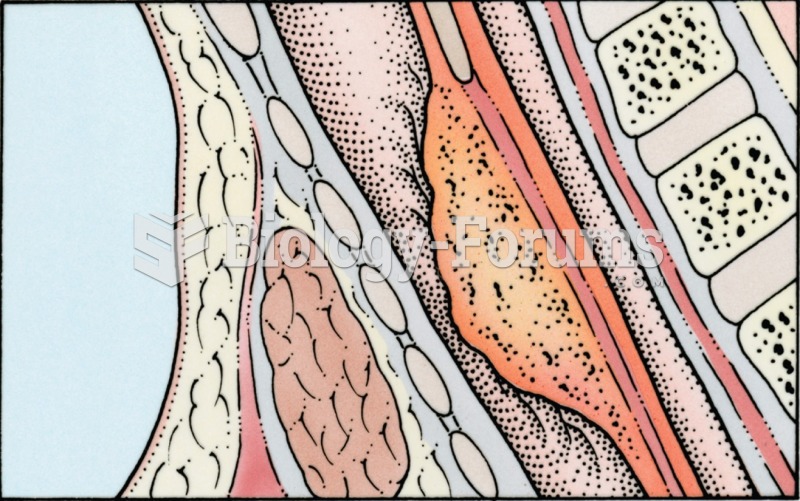|
|
|
The familiar sounds of your heart are made by the heart's valves as they open and close.
Bacteria have been found alive in a lake buried one half mile under ice in Antarctica.
When intravenous medications are involved in adverse drug events, their harmful effects may occur more rapidly, and be more severe than errors with oral medications. This is due to the direct administration into the bloodstream.
There are major differences in the metabolism of morphine and the illegal drug heroin. Morphine mostly produces its CNS effects through m-receptors, and at k- and d-receptors. Heroin has a slight affinity for opiate receptors. Most of its actions are due to metabolism to active metabolites (6-acetylmorphine, morphine, and morphine-6-glucuronide).
People with high total cholesterol have about two times the risk for heart disease as people with ideal levels.
 Care must be taken in handling bodily fluids to prevent the transfer of infectious agents through co
Care must be taken in handling bodily fluids to prevent the transfer of infectious agents through co
 Changes in the bronchioles during an asthma attack: (a) Normal bronchiole; (b) the inflammatory comp
Changes in the bronchioles during an asthma attack: (a) Normal bronchiole; (b) the inflammatory comp





